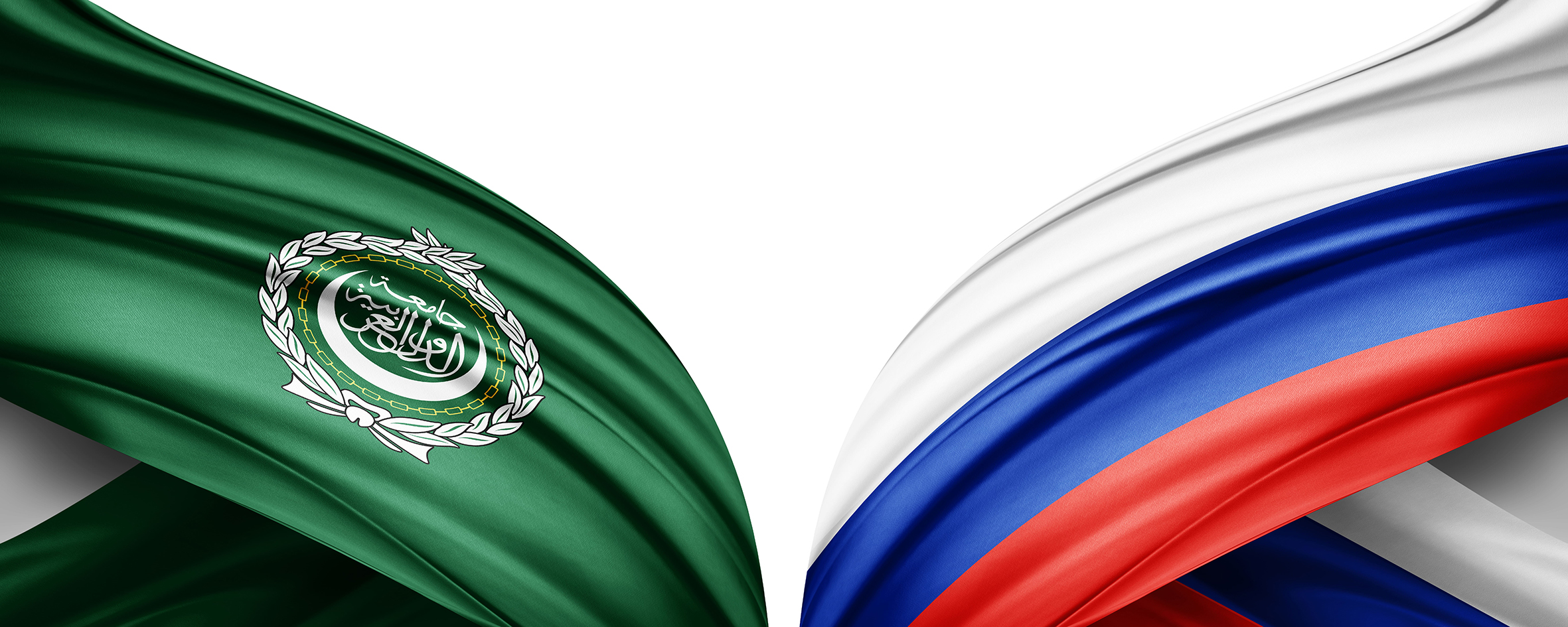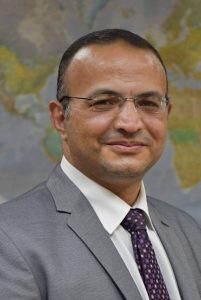Russia has become a primary actor in conflict zones throughout the Arab region, including Syria, Libya, and Iraq. This reflects Russia’s ambition to establish itself as a global power with interests in the region, as it pursues specific goals in both the economic and security spheres. In that context, Russia has strengthened its bilateral relations with several Arab countries, taking part in reconstruction efforts. Russia has also become involved in the efforts to combat terrorist groups, in order to prevent them from attacking its interests in the region or expanding their activities to Russia’s home territories. Finally, Russia is looking to fill the void that could result from a potential US military withdrawal from Syria and Iraq, this is in anticipation to an Afghanistan style withdrawal.
Growing involvement
Russia has successfully sponsored a new truce in Deraa in Syria between the Bashar regime and the armed opposition. The truce stipulates those members of the armed opposition who wish to stay in Deraa must hand over their weapons, those who do not wish to lay down their arms, are to be moved to the north of Syria. Russian military police would oversee the whole operation from start to finish, as well as the 8th Brigade of the Syrian army, supported by Moscow to ensure a smooth implementation of the truce.
Russia’s success in achieving this truce came in tandem with declarations regarding other Arab crises, such as Libya, Iraq and Syria. With respect to Libya, Russia affirmed via its foreign minister’s statement, that withdrawing foreign fighters from that country is a necessity. Many pointed out that Russia was employing a double standard in this respect, as forces belonging to the Wagner group played a significant role in the Libyan conflict. Some commentators argue that Russia is following the example set by Iran, supporting militias and mercenaries on the ground without setting out clear restrictions on their activities. The French paper “Le Figaro”, for example, published a report on the 23rd of June 2021, describing the Wagner Group as Putin’s secret army, deployed across the globe in hotspots that are key to Russian interests.
Russia has also been monitoring America’s deployment in Iraq very closely, perceiving there is a strong possibility the US could withdraw from that country in the same manner that it withdrew from Afghanistan, as it could from Syria as well. Russia is preparing to deal with the consequences of these potential withdrawals, including the reactions of US allies in the region to such eventualities.
The Russian special envoy to Syria, Alexander Lavrentiev said last July that Russia informed Syria that Iraq insists on the withdrawal of the US contingent from Iraq, which would make maintaining US military presence in Syria logistically impossible.
Out of concern over the consequences that could be seen in the region due to the US withdrawal, Russia has called on all parties involved to resume the negotiations of the G4+1 in Vienna, with indirect American involvement, to settle all differences on the nuclear agreement. The negotiations had halted because of Iran holding elections for their new president.
Russian Goals
Russia’s growing involvement in Arab issues aims to achieve several objectives, including:
- Entrenching its military and political roles: Russia made sure that the outcome in Deraa were consistent with its own views, which in some cases was differs from Syrian and Iranian objectives. Russia ensured that its MPs were the ones that will patrol the lines of control and oversee the truce in Deraa, to prevent another escalation by the 4th Syrian Division, and made sure to move all fighters who would not lay down their arms to the north of Syria. While this truce might reflect the change in the balance of power in favor of the Syrian regime, it demonstrates that Russia alone holds all the keys to the resolution of this conflict. This indicates that differences between the allies in Syria regarding political and security arrangements for the coming phase are gradually coming to a head.
- Dealing with delayed issues: Russia is preparing to deal with issues that were postponed due to the continuation of armed conflicts, and remnants of terrorist groups such as Islamic State in the various hotspots in the region. Now, Russia is focusing on making investments in countries such as Iraq. In this context, a joint Russian – Iraqi conference was held on the 26th of August, attended by the Russian foreign minister Sergei Lavrov, the Iraqi foreign minister Fouad Hussein, as well as the Russian deputy prime minister Yuri Borisov. The parties agreed to quickly complete all electrical projects previously contracted by Russian companies, but not completed. They also discussed means of improving farming technology and easing the entry of investors and diplomats from both countries.
- Guaranteeing a seat at settlement negotiations: Russia seeks to establish its presence as an essential party in negotiations to settle the conflict in Libya. Russia is seeking to realize this by reaching out to the various parties, Libyan, regional and international, involved in this issue. In a meeting with Angela Merkel in Moscow on the 21st of August, Putin called on the international community to continue the debate with all political actors with influence in Libya. He added that the second round of the Berlin talks that took place last January, with the participation of Russia, helped to bring about the current results that are on the ground in Libya today.
However, there are reservations regarding Russia’s approach to Libya. Russia is accused by many regional and international powers of being biased to certain parties in the conflict, even if it maintains channels of communication with the various sides. Moreover, Russia’s call for all foreign mercenary groups to leave Libya has fallen on deaf ears, due to the prominent role played by the Russian military group Wagner on the Libyan scene. In addition, all Libyan parties are currently occupied with the upcoming elections on the 24th of December, as they will have a direct impact on what the political arrangements in Libya’s upcoming phase.
- Expanding security cooperation: Russia is also seeking to raise its level of security cooperation with several Arab countries in the region. This is to combat the threat from some terrorist groups, especially those from central Asia, to move their operations onto Russian soil. This is to preempt these groups before they complete their moves, this is given that the Syrian regime has gained the upper hand and IS no longer is capable of exerting control over the areas it once held. There have been reports that Russian federal security has been successful in dismantling an IS sleeper cell that was planning to conduct operations in Russia.
- Preventing further wars: Russia takes the position that reaching a nuclear agreement between Iran and the G5, constitutes an important mechanism to avoid the outbreak of another war in the region. Such a war would have far reached regional consequences, especially on the states that Iran has a vested interest in. Moreover, despite Russia’s support for Iran, it does not want to see a nuclear armed Iran, as it goes against its interests and its vision for the balance of power in the Arab region.
In Sum, Russia is likely to enhance its engagement with various regional crises in the near future, not only to establish its role and influence, but also to achieve economic gains and contain any potential security threats to its interests as a result of this expanding role.


